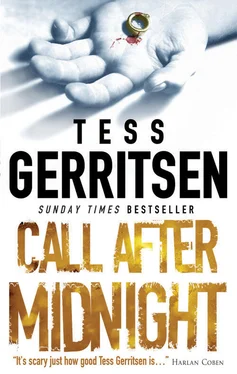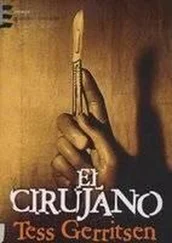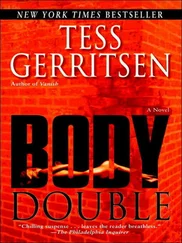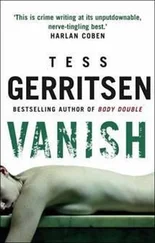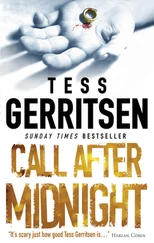“Told you I’d get it,” said Tim, plopping into the leather chair across from Nick. “I had my buddy at the FBI do a little fishing. He came up with zilch, so I did a little poking around on my own. Not easy, I’ll tell ya, getting this out of classified. They’ve got some new idiot up there who insists on doing his job.”
Nick frowned. “You had to get this through security?”
“Yep. There’s more, but I couldn’t access it. Found out central intelligence has a file on your man.”
Nick flipped the folder open and stared in amazement. What he saw raised more questions than ever, questions for which there seemed to be no answers. “What the hell does this mean?” he muttered.
“That’s why you couldn’t find anything about Geoffrey H. Fontaine,” said Tim. “Until a year ago, the guy didn’t exist.”
Nick’s jaw snapped up. “Can you get me more?”
“Hey, Nick, I think we’re trespassing on someone else’s turf. Those Company boys might get hot under the collar.”
“So let ’em sue me.” Nick wasn’t in the least intimidated by the CIA. Not after all the incompetent Company men he’d met. “Anyway,” he said with a shrug, “I’m just doing my job. I’ve got a grieving widow, remember?”
“But this Fontaine stuff goes pretty deep.”
“So do you, Tim.”
Tim grinned. “What is it, Nick? Turning detective?”
“No. Just curious.” He scowled at the day’s pile of work on his desk. It was all bureaucratic crap—the bane of his existence—but it had to be done. This Fontaine case was distracting him. He should just give the grieving widow a pat on the shoulder, murmur a kind word and send her out the door. Then he should forget the whole thing. Geoffrey Fontaine, whatever his real name, was dead.
But Tim had set Nick’s curiosity on fire. He glanced at his friend. “Say, how about hunting up a few things about the guy’s wife? Sarah Fontaine. That might get us somewhere.”
“Why don’t you get it yourself?”
“You’re the one with all that hot computer access.”
“Yeah, but you’ve got the woman herself.” Tim nodded toward the door. “I heard the secretary take down her name. Sarah Fontaine’s sitting in your waiting room right now.”
* * *
THE SECRETARY WAS a graying, middle-aged woman with china-blue eyes and a mouth that seemed permanently etched in two straight lines. She glanced up from her typewriter just long enough to take Sarah’s name and direct her toward a nearby couch.
Stacked neatly on a coffee table by the couch were the usual waiting room magazines, as well as a few issues of Foreign Affairs and World Press Review , to which the address labels were still attached: Dr. Nicholas O’Hara.
As the secretary turned back to her typewriter, Sarah sank into the cushions of the couch and stared dully at her hands, which were now folded in her lap. She hadn’t yet shaken the flu, and she was still cold and miserable. But in the past ten hours, a layer of numbness had built up around her, a protective shell that made sights and sounds seem distant. Even physical pain bore a strange dullness. When she’d stubbed her toe in the shower this morning, she’d felt the throb, but somehow she hadn’t cared.
Last night, after the phone call, the pain had overwhelmed her. Now she was only numb. Gazing down, she saw for the first time what a mess she’d made of getting dressed. None of her clothes quite matched. Yet on a subconscious level, she’d chosen to wear things that gave her solace: a favorite gray wool skirt, an old pullover, brown walking shoes. Life had suddenly turned frightening for Sarah; she needed to be comforted by the familiar.
The secretary’s intercom buzzed, and a voice said, “Angie? Can you send Mrs. Fontaine in?”
“Yes, Mr. O’Hara.” Angie nodded at Sarah. “You can go in now,” she said.
Sarah slipped on her glasses, rose to her feet and entered the office marked N. O’Hara. Just inside the door, she paused on the thick carpet and looked calmly at the man on the other side of the desk.
He stood before the window. The sun shone in through pencil-sketch trees, blinding her. At first she saw only the man’s silhouette. He was tall and slender, and his shoulders slouched a little—he looked tired. Moving from the window, he came around the desk to meet her. His blue shirt was wrinkled; a nondescript tie hung loosely around his neck, as if he’d been tugging at it.
“Mrs. Fontaine,” he said, “I’m Nick O’Hara.” Instantly she recognized the voice from the telephone, the same voice that had shattered her world just ten hours earlier.
He held his hand out to her, a gesture that struck Sarah as too automatic, a mere formality that he no doubt extended to all widows. But his grip was firm. As he shifted toward the window, the light fell fully on his face. She saw long, thin features, an angular jaw, a sober mouth. She judged him to be in his late thirties, perhaps older. His dark brown hair was woven with gray at the temples. Beneath the slate-colored eyes were dark circles.
He motioned her to a chair. As she sat down, she noticed for the first time that a third person was in the room, a man with glasses and a bushy black beard who was sitting quietly in a corner chair. She’d seen him when he’d passed through the reception room earlier.
Nick settled on the edge of the desk and looked at her. “I’m very sorry about your husband, Mrs. Fontaine,” he said gently. “It’s a terrible shock, I know. Most people don’t want to believe us when they get that phone call. I felt I had to meet you face-to-face. I have questions. I’m sure you have, too.” He nodded at the man with the beard. “You don’t mind Mr. Greenstein listening in, do you?”
She shrugged, wondering vaguely why Mr. Greenstein was there.
“We’re both with state,” Nick continued. “I’m with consular affairs in the foreign service. Mr. Greenstein’s with our technical support division.”
“I see.” Shivering, she pulled her sweater tighter. The chills were starting again, and her throat was sore. Why were government offices always so cold? she wondered.
“Are you all right, Mrs. Fontaine?” Nick asked.
She looked up miserably at him. “Your office is chilly.”
“Can I get you a cup of coffee?”
“No, thank you. Please, I just want to know about my husband. I still can’t believe it, Mr. O’Hara. I keep thinking something’s wrong. That there’s been a mistake.”
He nodded sympathetically. “That’s a common reaction, to think it’s all a mistake.”
“Is it?”
“Denial. Everyone goes through it. That’s what you’re feeling now.”
“But you don’t ask every widow to your office, do you? There must be something different about Geoffrey.”
“Yes,” he admitted. “There is.”
He turned and swept up a file folder from his desk. After flipping through it, he pulled out a page covered with notes. The handwriting was an illegible scrawl; it had to be his writing, she thought. No one but the writer himself would ever be able to decipher it.
“After I called you, Mrs. Fontaine, I got in touch with our consulate in Berlin. What you said last night bothered me. Enough to make me recheck the facts.” His pause made her gaze up at him expectantly. She found two steady eyes, tired and troubled, watching her. “I talked to Wes Corrigan, our consul in Berlin. Here’s what he told me.” He glanced down at his notes. “Yesterday, about 8:00 p.m. Berlin time, a man named Geoffrey Fontaine checked into Hotel Regina. He paid with a traveler’s check. The signature matched. For identification he used his passport. About four hours later, at midnight, the fire department answered a call at the hotel. Your husband’s room was in flames. By the time they got it under control, the room was totally destroyed. The official explanation was that he’d fallen asleep while smoking in bed. Your husband, I’m afraid, was burned beyond recognition.”
Читать дальше
